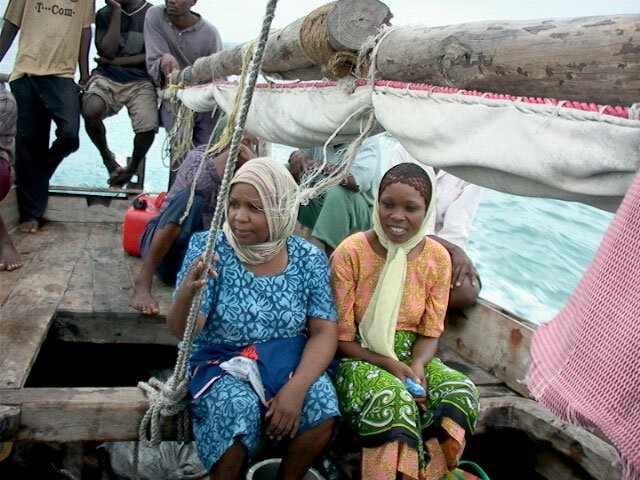A major study of the role of indigenous customs and taboos in the management of marine resources along the coastline of East Africa has culminated in production of a landmark publication by the CRTR East Africa Centre of Excellence.
The authors, Desiderius Masalu, Rukia Kitula and Mwanahija Shalli, from the University of Dar es Salaam's Institute of Marine Sciences at Stone Town, Zanzibar, Tanzania, have compiled a 64-page booklet, titled Customs and taboos: The role of indigenous knowledge in the management of fish stocks and coral reefs in Tanzania.
 |
IMS researchers Rukia Kitula (left) and Mwanahija Shalli during the data collection phase of the project.
|
Indigenous knowledge encompasses the wisdom, knowledge, customs, taboos, beliefs, teachings and practices of local villagers. According to Desiderius, the research team is indebted to the people and leaders of the villages involved in the study. The villagers accepted the researchers into their lives and homes with open hearts during the data collection phase.
The study reveals that local indigenous knowledge – when applied in conjunction with scientifically-developed and improved technology – promises to provide useful ideas and procedures for restoring environmental resilience in the developing world.
Those traditional management strategies which serve to indirectly protect coral reefs and the marine environment include:
- Customary marine tenure;
- Taboos and beliefs;
- Magical power;
- Technical inadequacies;
- Closures for octopus fishery; and
- Restrictions of destructive fishing gear.
Indigenous knowledge is developed outside the formal education system over many years and passed down orally from generation to generation. This knowledge is quickly disappearing as young people spend more time at school, and older people die without their knowledge being transferred or documented.
Unless steps are taken to preserve and utilise indigenous knowledge, there is a risk that its role in protecting fish stocks and coastal habitats will be further eroded, the authors concluded. One option is to make a concerted effort to document more of this knowledge, and share it with young people by incorporating it into both the formal school curriculum and informal education.